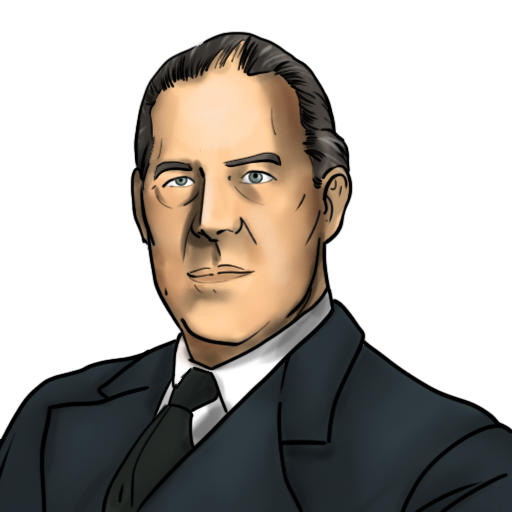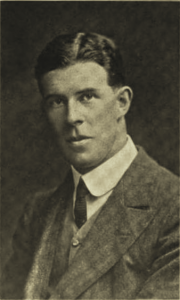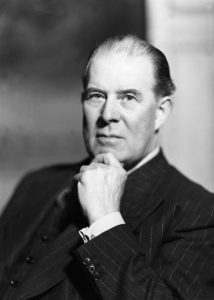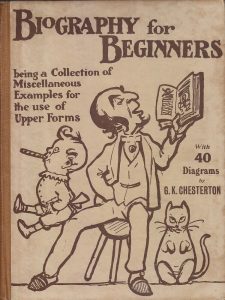
Edmund Clerihew Bentley, born on July 10, 1875, in London, England, was a multi-talented author, journalist, and humorist who left an indelible mark on the literary world. Best known as the inventor of the clerihew, a whimsical form of biographical poetry, Bentley introduced a unique blend of humor and wit to the world of verse. His work continues to entertain and inspire readers, celebrating the power of language and the joy of laughter.

The Invention of the Clerihew
While still a teenager, Bentley created a new form of poetry that would become his namesake: the clerihew. The clerihew is a funny and light-hearted type of poem that focuses on famous people such as historical figures or celebrities. It has four lines, and the first line usually starts with the person’s name. The rest of the poem is about something playful or surprising related to the person’s life or personality. Because clerihews are short and easy to understand, they are enjoyable for people of all ages.
Bentley’s first collection of clerihews, Biography for Beginners (1905), showcased his ability to blend humor and verse, capturing the public’s imagination. His clever poems about historical figures and celebrities delighted readers, and the popularity of the form soon spread, influencing other poets and humorists.
Clerihews are meant to be funny and use wordplay. When writing clerihews, poets often use puns, rhymes, and surprising ideas to make the person in the poem more interesting and fun. The tone of a clerihew is usually light-hearted, which means the poems are not serious but instead meant to make people laugh and think about famous people in a new way.
Here is an example of one of Bentley’s, written about Sir Christopher Wren, a famous English architect:
Sir Christopher Wren
Said, “I am going to dine with some men.
If anyone calls
Say I am designing St. Paul’s.”
And here is another one, about King George III of England:
George the Third
Ought never to have occurred.
One can only wonder
At so grotesque a blunder.
These examples show how clerihews use playful language, focus on well-known people, and have surprising twists to make them funny and interesting. Edmund Clerihew Bentley’s creation of this type of poem has added a fun new way to write and read poetry, and has encouraged lots of other poets and readers to enjoy literature in a more playful and imaginative way.
Biography for Beginners proved to be popular enough that Bentley wrote two sequels, More Biography (1929) and Baseless Biography (1939).
Mystery Novels and Journalism
In addition to his contributions to the world of poetry, Edmund Clerihew Bentley was also an accomplished mystery writer and journalist. His most famous mystery novel, Trent’s Last Case (1913), introduced the character Philip Trent, an amateur detective. The novel was well-received and is considered a classic in the detective fiction genre, influencing future mystery writers such as Dorothy L. Sayers and Agatha Christie.
Throughout his life, Bentley worked as a journalist for various British publications, including The Daily Telegraph and The Daily News. His journalism career allowed him to hone his writing skills and explore a wide range of topics, further establishing his reputation as a versatile and talented writer.
Inspiring Generations of Readers
Edmund Clerihew Bentley’s unique blend of humor and creativity has left a lasting impact on the world of literature. The clerihew form he invented has inspired generations of poets and humorists to explore the playful side of verse, while his mystery novels have captivated readers with their engaging plots and memorable characters.

Edmund Clerihew Bentley passed away at the age of 80 on March 30, 1956, but his legacy of laughter and creativity lives on. As we celebrate his life and work, consider reading one of his amusing clerihews, sharing his poetry with others, or delving into the mystery of Trent’s Last Case. Bentley’s inventive spirit and passion for language continue to entertain and inspire readers around the world, reminding us of the joy and wonder that can be found in the written word.
- Enhancing ESL Fluency Through Children’s Poetry - July 24, 2024
- Sensory Poetry Lesson Plan: Bringing Poems to Life Through the Five Senses - July 17, 2024
- The Power of Rhythm: How Poetic Meter Enhances Memory and Recall - July 10, 2024






